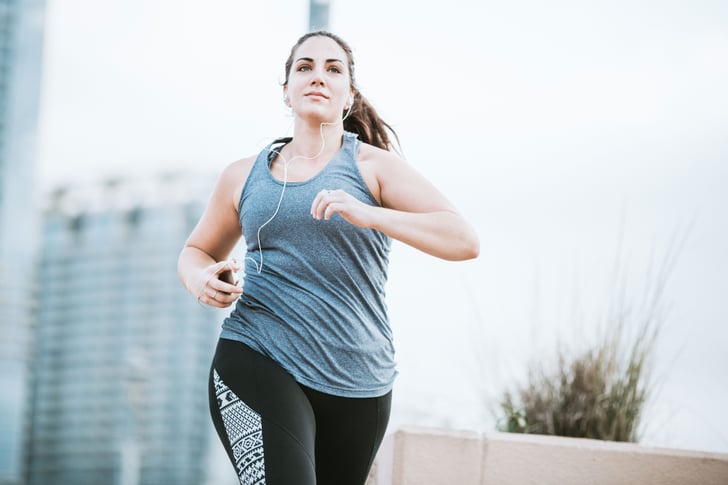Search for:.
Strength Running. Like what you read? You might like these posts as well Was this post helpful? Comments Laura says:.
Weight Loss and Running Speed: How Exactly Are the Two Connected?
February 4, at am. Jason Fitzgerald says:. February 4, at pm. MQ says:. Trent says:. Carolyn says:.
Mary says:. February 5, at am. February 5, at pm. Craig Todd says:. Dan says:. February 6, at pm. Dhruv says:. February 22, at am.
March 18, at pm. March 25, at pm. March 31, at pm. Get the Free Starter Kit. Bonus: this kind of workout will also help you get faster! Your hard intervals are going to be challenging and you'll definitely feel out of breath by the end; that's kind of the point!
Still, make sure to listen to your body and take extra breaks, extend your recovery time, or do fewer intervals as needed. And remember that diet comes into play for weight loss as well. You want to eat in a slight calorie deficit , focus on consuming whole foods as opposed to processed ones , and up your intake of protein and veggies.
Here's more on losing weight through diet. Making strategic food choices and doing a speed workout and a couple of slower runs throughout the week plus some strength training is a great plan for burning calories and losing weight. Running fast burns more calories. It depends on your exact pace and fitness level, but Tom said that running at a faster pace can potentially burn a few extra calories per mile he estimated around You get a longer "afterburn effect.
When you need more energy, you burn more fuel, so the EPOC effect keeps you burning calories after the workout is over. Not a ton , but every little bit counts! Fast, intense runs can decrease your appetite. All exercise has the potential to reduce your appetite , but research has shown that more intense exercise leads to a larger decrease in ghrelin the hormone that stimulates your appetite , which results in you being less hungry than you would be after a moderate-intensity workout.
That doesn't mean you'll be skipping meals after fast runs and you shouldn't — post-run snacks help with recovery and muscle maintenance , but you might find yourself consuming fewer calories overall, Tom said. As the weeks pass, tip the balance further and further toward running until you are comfortable doing straight runs. Bones, muscles and joints need time to recover from, and adapt to, the stress of running. For most beginners, one day is not enough time for these tissues to come back stronger. So limit your running to every other day for at least the first several weeks of your program.

If you wish to exercise more frequently, do walks or non-impact workouts, such as cycling, between run days. Change your training slowly, either by making your long runs longer or making them harder more on that in a second. If you have trouble adding run miles, add walking before and after your run instead. Here is a four-week example of a sensible way to ease into a running program:. To lose weight, it helps to maintain a daily calorie deficit.
Watch Next
In other words, you need to burn more calories than you eat each day. There are two ways to do this: Eat less and move more. Running helps you maintain a calorie deficit by increasing the number of calories you burn. You can increase your calorie deficit and your rate of weight loss — at least in theory — by eating less. The problem is that running, like other forms of exercise, increases appetite which makes it difficult to eat less — something known as the compensation effect. Individual appetite responses to exercise are varied. Working out has little effect on hunger in some people, yet makes others ravenous.
If running increases your appetite, you will probably eat more. Replace the junk with more fruits, vegetables and lean proteins and see what happens. High-quality foods — foods boasting macronutrients , micronutrients and fiber — are less energy dense and more satiating than low-quality, processed foods, so they fill you up with fewer calories.
Does Weight Loss Make You Run Faster? - The Wired Runner
By increasing your overall diet quality , you can eat enough to satisfy your heightened appetite without putting the brakes on weight loss. Here are lists of high-quality and low-quality foods, given in rough descending order of quality. When you start running, make a simultaneous effort to eat fewer foods from the right-hand column and more from the left-hand column. There is proof it works. Danish researchers reported that new runners who ran more than 5K 3. Meanwhile, new runners who also changed their diets lost an average of Often, athletes are chronically underfueling , and that slows their metabolism to a crawl, explains Nanci Guest, the dietitian behind the Canadian Olympic team during the Vancouver Winter Olympics.
But stick to lowering your intake by calories a day, maximum. If your goal is to lose more than If you are highly motivated, consider a long-term goal of building up to 60 minutes of running per day, 6 days a week.